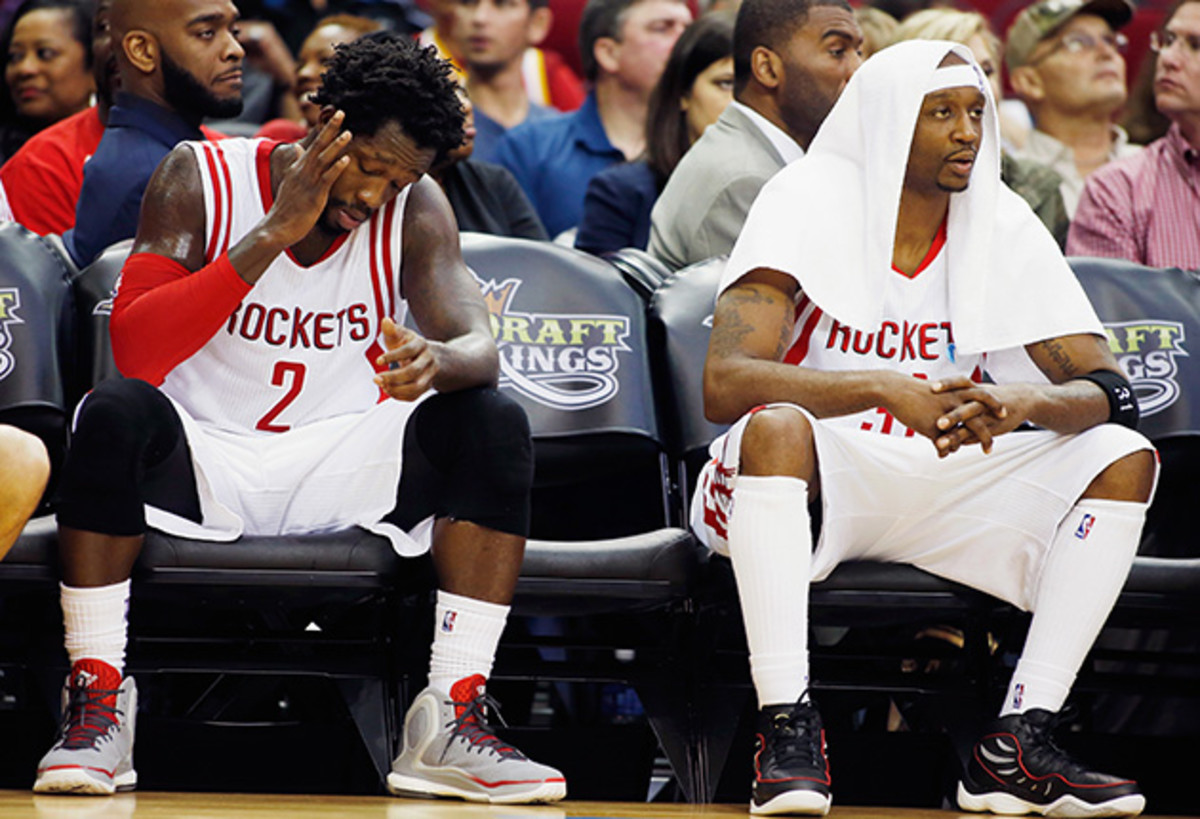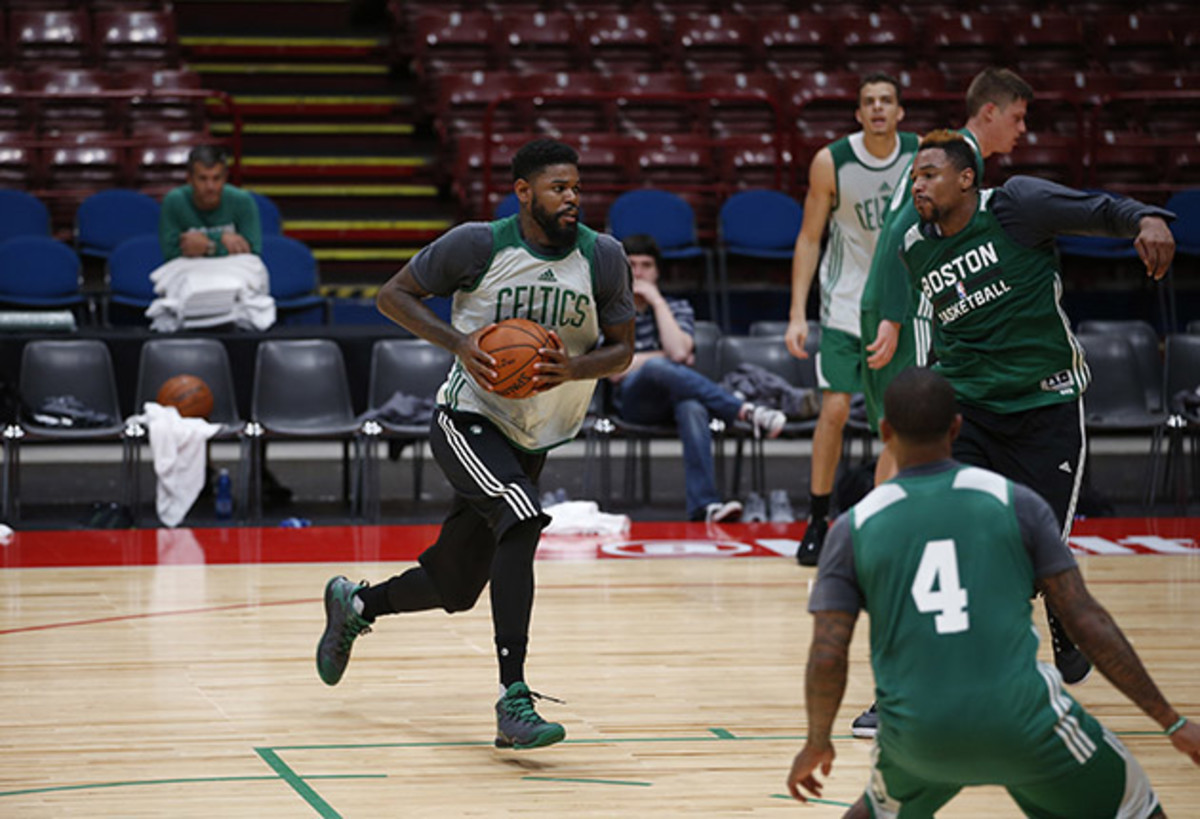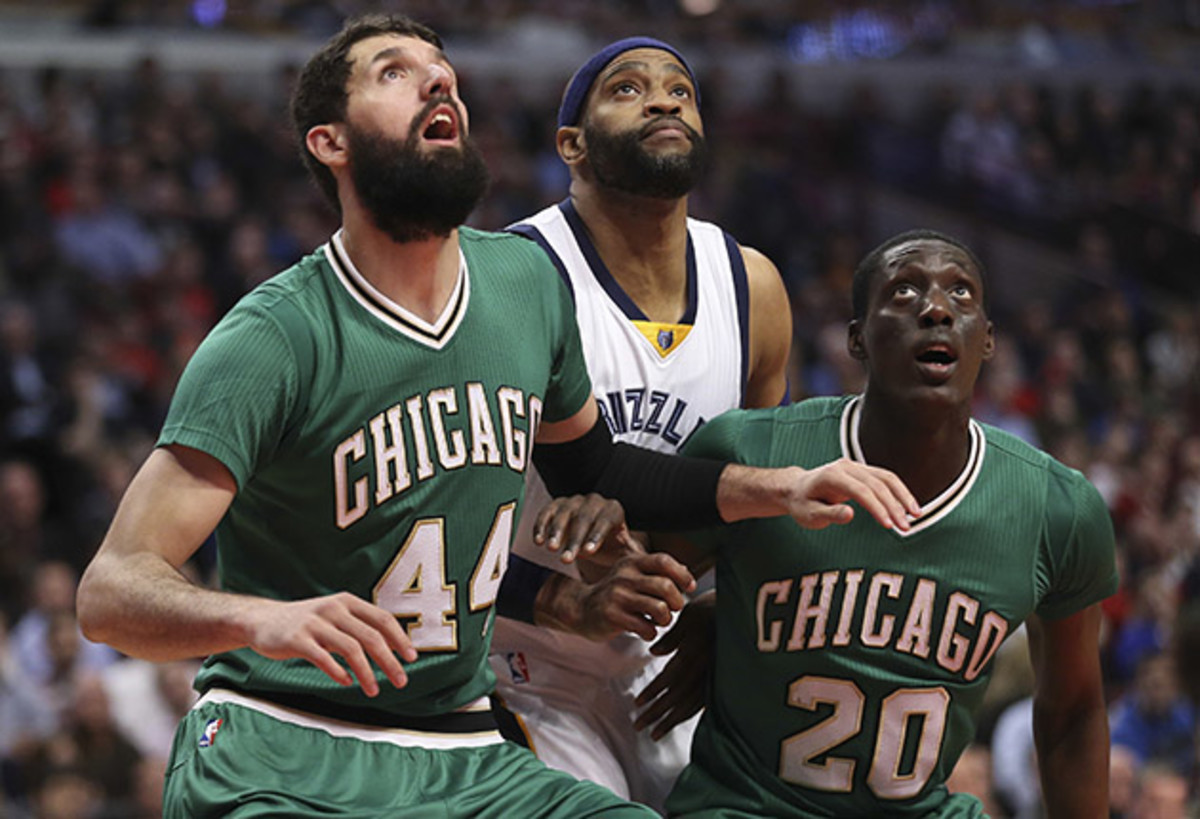Shining a spotlight on the three best second-unit rotations in the NBA

NBA teams are driven by stars but sustained by depth. Almost every member of an active roster comes into play at some point of the 82-game regular season marathon; now that forward-thinking teams more closely monitor their players’ minutes and workload than ever before, the role of reserves has grown accordingly. Factor in the injuries, suspensions, matchups, and foul trouble that bring second- and third-stringers into the limelight and the need for a reliable bench becomes a matter of real consequence.
With that in mind, we’ve brought our focus to the three best bench arrangements in the league at this stage in the preseason, along with the qualities and skill sets that make these particular reserves so effective.
Houston Rockets

• MORE NBA: Can Melo, Knicks supporting cast make playoffs?
It never stops with the Rockets. Just when a substitution would seem to bring some relief from the starters’ fast-breaking onslaught, any number of fresh reserves will step in to propel Houston’s energetic style. That synergy is key. It’s tricky enough to amass as much raw talent as the Rockets have. To do so while exclusively acquiring and developing players who fit Houston’s systems is remarkable—especially in this volume.
Players like Patrick Beverley and Corey Brewer are solid in their own right but vicious in context. Houston preys on the passing lanes; its collective length is dedicated to cutting off angles and smothering opponents with pressure, areas in which players like Beverley and Brewer thrive. The Rockets' swarm forces the kind of panic that can be exploited. First comes a rushed shot or turnover. That triggers a transition explosion in which Houston's high-motor perimeter players are already a full beat ahead of their competition. Sophomore K.J. McDaniels and rookie Sam Dekker fit the same athletic bill. If given time and entrusted with a role, either should do well within the approach Houston employs.
The Rockets' bigs, too, play a peg up from their circumstances. Donatas Motiejunas will come off the bench once he fully recovers from back surgery, though—as he showed while filling in for an injured Dwight Howard last season—he could start for a number of teams. With his mobility, post-up efficiency, and range shooting comes flexibility. Motiejunas is best served as a five and could be locked into that position on a team with plenty of other options. He has the ball skills to dabble at the four, though, and could do so while complementing either Howard or fellow reserve Clint Capela. Don't forget the latter; the 21-year-old Capela was a breakout contributor for Houston in the postseason and projects to be another game-changing athlete for Kevin McHale's rotation.
Beyond that: Jason Terry, who wound up starting for Houston in the playoffs due to Beverley's season-ending injury, now slides into a more comfortable role deeper on the bench; Marcus Thornton could have his moments as a spot scorer; and second-round pick Montrezl Harrell seems a worthy experiment for the way his high-strung defense aligns with the Rockets' preferred style. Houston runs deep with hard-working, fast-moving contributors who can keep the engine humming.
Boston Celtics

• Holiday Q&A: Playing fast while taking it slow
Brad Stevens has the benefit of working with a reserve core deep in both ranks and degree of talent. Isaiah Thomas and Amir Johnson rate among the best backups in the league. In Thomas, the Celtics have a sixth man capable of initiating, creating, handling, and scoring—the standard trademarks of the profession. Johnson's work is far quieter, though his defense is strong even by the standards of starting-caliber players. He brings Boston's bench a touch of rim protection while playing multiple positions. It's no coincidence that Johnson ranks among the top subs in the league in plus-minus through the early stages of the preseason; no matter the particulars of his team or circumstances, Johnson finds all kinds of ways to make positive contributions.
Either Thomas or Johnson would make for a fine starter. Yet as it stands they'll fill needed roles on one of the most balanced teams in the league—a roster that could realistically go 10- or 11-deep on a nightly basis. None of the bigs on the roster make a perfect frontcourt fit, though between Johnson, Kelly Olynyk, Jared Sullinger, and Jonas Jerebko, Stevens has a diverse group of players who could form flexible tandems behind David Lee and Tyler Zeller. Evan Turner, flawed as his game is, complements Marcus Smart and Avery Bradley well as a shot-creating wing.
Some capable players—even beyond prospects R.J. Hunter, Terry Rozier, and James Young—will inevitably become victims of Boston's minutes crunch. Worse (or better?) yet: This team may be so deep that Perry Jones, a long, athletic forward who still has some NBA intrigue, might not even make the regular season roster.
Chicago Bulls

• MORE NBA: Pressure rankings for new NBA coaches
Chicago's bench, as so often seems to be the case, will be tested by injury. Mike Dunleavy (back) will miss the start of the season as might Derrick Rose (orbital bone), the combination of which will cinch up the Bulls' perimeter reserves to dilute the quality of its depth chart.
But let's consider what Chicago's bench will ultimately look like once Rose and Dunleavy return from their respective injuries. Fred Hoiberg hasn't made many firm commitments in terms of who will ultimately be starting, though some can be inferred. Rose and Jimmy Butler, for instance, are virtual locks. Pau Gasol seems likely to join them. That leaves room for one wing and one big, all while deferring the remainder of Chicago's capable options to the bench.
Each of Tony Snell, Doug McDermott, and a post-rehab Dunleavy would give the Bulls a different look in their now-flexible wing slot. There's no pressing need for Hoiberg to commit early; Chicago can begin its season with whichever player (including, perhaps, Nikola Mirotic, provided he isn't tabbed the starter at power forward) best balances Hoiberg's offensive and defensive priorities. Snell, who developed into a dependable perimeter shooter last season and does better defensive work than those aforementioned alternatives, might make the most sense as a wait-and-see stopgap.
Examining the best and worst bets for the 2015—16 NBA over/under lines
Hoiberg will always have the option to bring in more shooting if he so chooses, especially now that McDermott has been empowered to fire away and is paying off that confidence with makes in the preseason. Dunleavy would bring some of the same with more serviceable defense, though his minutes will likely need to be monitored after he returns from back surgery. Aaron Brooks or Kirk Hinrich could also fill minutes as an undersized two to varying effect. The starting job matters. What matters more is that Chicago can fill out 96 wing minutes with capable, productive play.
They're well on their way. The same basic concept applies to the frontcourt, where the Bulls have a wealth of options thanks to their burgeoning prospects. There's some work to be done in isolating an optimal fit for Gasol's poor defense, Joakim Noah's lacking offense, and Taj Gibson's limited range. Changes in system may help smooth over some of those flaws. Others might come through the better health of Noah and Gibson, both of whom should be in less game-to-game pain than they were last season. Mirotic is crucial, regardless, as a floor-spacer and spazzy driver who can keep Chicago's offense moving. Add in preseason standout Bobby Portis and the Hoiberg's rotational decisions are only complicated further. Here are five bigs with very different games and quirky synergies all deserving of minutes. If only every coach could be so lucky as to wrestle with finding roles and minutes for all of them.
